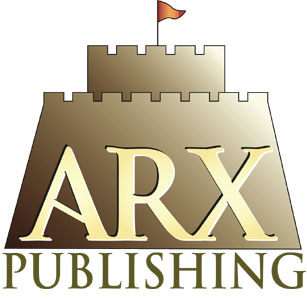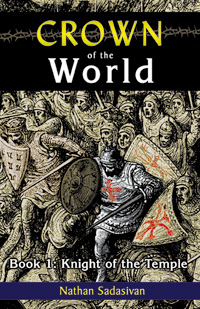
P.O. Box 1333
Merchantville NJ 08109, USA
Email: info@arxpub.com
 |
Arx
Publishing, LLC P.O. Box 1333 Merchantville NJ 08109, USA Email: info@arxpub.com |
|
|
|
||
 It's pretty
amazing that you began writing
Crown of the World
when you
were 15. What inspired you to write it?
It's pretty
amazing that you began writing
Crown of the World
when you
were 15. What inspired you to write it?